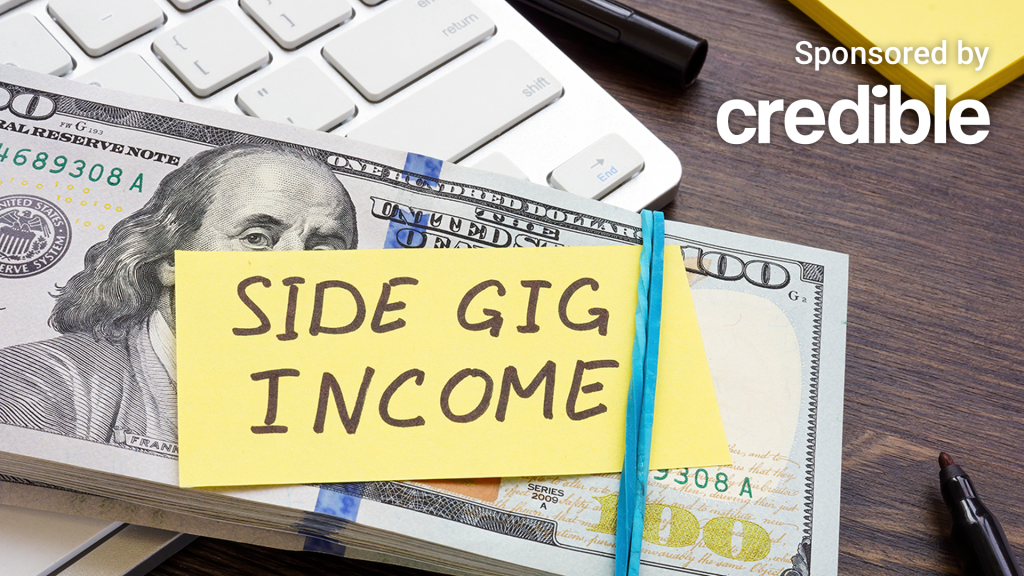Many Americans are beating inflationary pressures by building a secondary income, a recent survey said.
Inflation and rising costs pushed 62% of Americans across all income levels to live paycheck to paycheck in February, according to a survey from LendingClub and PYMNTS.
Roughly one-quarter of consumers reported having a side job to cope with inflationary pressures, while 17% said they relied on passive income or some form of financial aid, the survey said.
Collectively, these forms of supplemental income could total $52 billion in monthly cash payments, the survey said. This could be why fewer consumers said they struggled to pay bills in February or why the number of those who reported living without difficulty has increased slightly, the survey said.
“While consumers have adjusted to inflationary pressures by budgeting and spending less, many have turned to supplemental income with a side job or alternative income sources to improve their financial standing,” LendingClub’s Financial Health Officer Anuj Nayar said in a statement. “A vast majority of consumers became used to working from home during the pandemic, and after returning to work, many kept flexible hours and turned to alternative income streams to expand their earning potential beyond a 9-to-5 job.”
If you are looking to reduce your expenses in the current economy, you could consider using a personal loan to pay down debt at a lower interest rate, saving you money each month. Visit Credible to find your personalized rate without affecting your credit score.
HOUSEHOLD BILLS COST AMERICANS 42% OF THEIR SALARY: SURVEY
More consumers likely to seek out alternative income sources
Of the 60% of respondents who said they worked, 27% of high-income consumers and 26% of middle-income consumers said they also had side jobs.
Seventy percent of the more affluent consumers working a side job did it because the income was easy to earn, the survey said. These consumers were also more likely to earn income from informal tasks or selling artisan or used products, according to the survey. Meanwhile, 46% of struggling consumers said they worked the extra job to help pay bills.
Supplemental income will likely be a key component of how consumers achieve financial stability in the future, according to the survey.
Among consumers who had not received extra income in the last three months, 51% said they are at least somewhat likely to seek another income source in the next 12 months, the survey said.
“As pandemic-related financial benefits were pulled back by the government, more and more people turned to alternative income to make ends meet and manage their cash flow,” Nayar said. “What is clear: no matter your income bracket, having supplemental income greatly impacts financial stability and can often mean the difference between living without difficulty and living paycheck to paycheck and struggling to pay monthly bills.”
If you are looking to pay off your high-interest debt, you could consider doing so with a personal loan at a lower rate. Visit Credible to speak with a personal loan expert and see if this option is right for you.without affecting your credit score.
HOME PRICES COULD DROP THROUGH 2023: ZILLOW
Side-gig workers prefer cash payments
Up to 50% of consumers said they earned extra money through tips and product resales – activities most associated with cash payments, the survey said.
“Some consumers may prefer cash because they think they can shelter it from taxes: 28% of consumers said their alternative sources of income are undeclared,” the report said.
The Internal Revenue Service (IRS) was set to change how supplemental income is reported for this tax season. However, in December it announced it would delay a new reporting standard.
Small businesses and people with side hustles were expecting to receive a form 1099K that would show their income and the number of transactions of more than $600 made with third-party settlement organizations (TPSOs) like PayPal and Venmo in 2022.
Before 2022, the form was only provided if a business made 200 or more third-party network transactions and the total value of those transactions was at least $20,000.
If you are struggling in the current economy, you could consider using a personal loan to help pay down debt at a lower interest rate. You can visit Credible to help you compare interest rates from multiple lenders and choose the one with the best rate for you.
INVESTOR HOME PURCHASES DROP BY ALMOST HALF – HERE’S WHY THAT COULD BE GOOD FOR HOMEBUYERS
Have a finance-related question, but don’t know who to ask? Email The Credible Money Expert at [email protected] and your question might be answered by Credible in our Money Expert column.
Read the full article here
